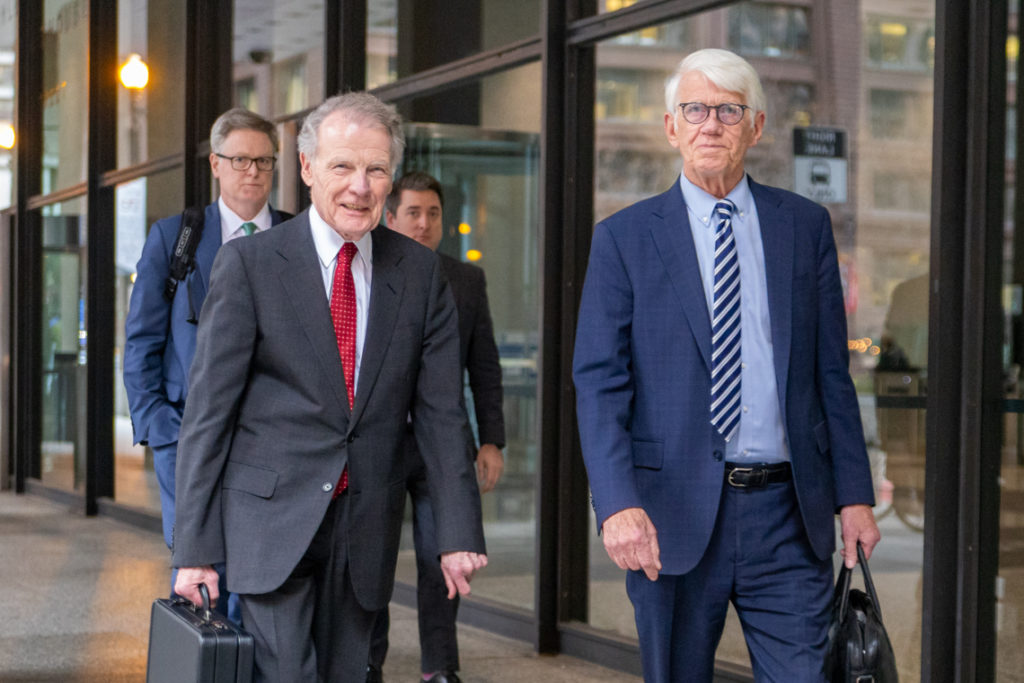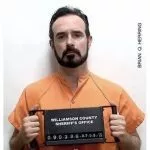
By HANNAH MEISEL
Capitol News Illinois
hmeisel@capitolnewsillinois.com
CHICAGO – The FBI wasted no time giving Fidel Marquez his first assignment after the chief lobbyist for electric utility Commonwealth Edison agreed to become a government mole in January 2019.
Before sunrise on the morning of Jan. 16, 2019, a pair of agents rang the doorbell at Marquez’s mother’s house. Standing in the foyer, Marquez told a federal jury on Wednesday, he grew “scared” as the agents played excerpts of his wiretapped phone calls – and immediately agreed to become a cooperating witness in the feds’ ongoing and massive probe into public corruption in Illinois.
The very next day at the FBI’s direction, Marquez made calls to two of ComEd’s most senior contract lobbyists to discuss the utility’s longstanding arrangements with several key political allies of then-Illinois House Speaker Michael Madigan. Beginning in 2011, ComEd indirectly paid what would eventually become five Madigan allies thousands of dollars each month for little to no work.
Read more: ‘They were being paid as a favor to Mike Madigan’: Feds’ star witness takes stand
“I have never, ever, ever said a word,” Chicago lobbyist Jay Doherty told Marquez in their January 2019 phone call about his long-ago agreement to funnel payments to Madigan associates through his ComEd contract.
But four months later, FBI agents would raid Doherty’s downtown Chicago offices. Agents across the city and state executed similar search warrants on others involved in the alleged scheme. The series of FBI searches on May 14, 2019, included the Quincy home of Mike McClain – the second call Marquez made after becoming a cooperating witness, and ComEd’s top contract lobbyist in Springfield.
Read more: ‘If it ain’t broke, don’t fix it’: Secretly recorded videos show ComEd lobbyists discussing alleged bribery scheme | ‘You had a choice to make’: Defense paints cooperating witness in ComEd trial as opportunistic
And this week, Marquez returned to the Dirksen Federal Courthouse for his second go-round as prosecutors’ star witness, testifying that ComEd agreed to pay the Madigan allies “as a favor” to the powerful speaker in exchange for legislation favorable to the utility in the General Assembly.
Marquez’s testimony already helped the feds win their case last year against McClain, Doherty and two other ex-ComEd executives for their role in the bribery scheme, and now Madigan and McClain are defendants in a related bribery and racketeering trial that extends far beyond the ComEd allegations.
Read more: ‘ComEd Four’ found guilty on all counts in bribery trial tied to ex-Speaker Madigan | 4 decades after rising to power and nearly 4 years since his fall, former Speaker Madigan goes to trial
The former speaker on Wednesday intently watched a computer monitor at his defense table as prosecutors played video recordings Marquez secretly made in the winter of 2019. In one video, Doherty explained to Marquez the origins of the subcontracting arrangements in 2011, which he said were orchestrated by ComEd’s then-CEO Frank Clark and Marquez’s predecessor, John Hooker, along with McClain.
That year, Doherty agreed to begin paying newly retired Chicago Ald. Frank Olivo of Madigan’s 13th Ward political power base, in addition to top 13th Ward precinct captain Ray Nice. In the video, Doherty held up four fingers to indicate the $4,000 monthly stipend Olivo was paid; Nice received $5,000 per month.
A couple years later, another top 13th Ward precinct captain, Ed Moody, was moved from McClain’s contract to Doherty’s at $4,500 per month, though he was eventually shifted to two other lobbyists’ contracts. And in 2018, Ald. Mike Zalewski of Chicago’s 23rd Ward began receiving $4,000 monthly checks from Doherty shortly after retiring from the city council.
Asked what the subcontractors were doing in exchange for the checks, Doherty told Marquez, “not – not much,” adding that he rarely even spoke with the men.
“They keep their mouth shut,” Doherty said a few minutes later. “But do they do anything for me on a day-to-day basis? No.”
At the FBI’s direction, Marquez approached Doherty, McClain and Hooker to seek their advice on a very real issue: how to explain the subcontractor arrangements to ComEd’s new CEO, Joe Dominguez.
Marquez was nervous about how Dominguez would react to his explanation, which was necessary for approving Doherty’s contract renewal for 2019. But Doherty counseled Marquez to present the issue in the overall context of ComEd’s economic viability.
“Number one: Your money comes from Springfield,” Doherty said, referring to the state’s regulatory process for approving utility rates. “… My bottom line advice would be, if it ain’t broke, don’t fix it with those guys.”
And if Dominguez were to question “Why would we pay a guy like Doherty, and these other three people, all this money?” Doherty said that “can be answered in Springfield with Madigan.”
“And to keep Mike Madigan happy, I think that’s worth it,” he told Marquez.
A couple weeks prior to the meeting with Doherty, Marquez secretly recorded Hooker during lunch at Chicago’s Union League Club. After Marquez took over Hooker’s job following his 2012 retirement from ComEd, Hooker became a contract lobbyist for the utility, and the men remained close.
Though Marquez had scheduled the lunch under the pretense of talking about a similar post-retirement plan for him, he also asked Hooker how he’d approach Dominguez about the subcontractors.
In addition to claiming credit for coming up with the subcontractor arrangement in the first place, Hooker advised that Doherty write a report on what each of the subcontractors did.
But Marquez received conflicting advice from McClain at a similar lunch meeting the two had in Springfield a couple weeks later.
“I would say to you, don’t put anything in writing,” McClain counseled in between bites of pizza at Saputo’s, a staple restaurant in Springfield’s political circles. “… I think all that can do is hurt ya.”
Earlier in their conversation, McClain affirmed Marquez’s concern that Dominguez may view Doherty’s contract through the lens of his former job as a federal prosecutor and start asking questions. In that case, McClain said, Marquez should explain how valuable the subcontractors were to Madigan’s political organization, adding that the arrangement was a “favor.”
McClain also explained that by using Doherty’s contract to pay the Madigan allies, ComEd had insulation from any federal tax investigation “if the IRS ever comes in and says, ‘Who are these guys and what do they do?’”
“It’s Doherty’s contract, so Doherty’s the one that has to – has to prove that,” he said.
McClain then offered to talk to Dominguez himself. After initially declining the help because the matter was internal to ComEd and McClain’s involvement might be seen as “inappropriate,” Marquez invited McClain to a meeting with Dominguez and Hooker in early March 2019.
In the grainy video footage of the meeting, McClain explained to Dominguez that the subcontractors were a vestige of the “old-fashioned patronage system.”
“‘You’re a ward committeeman and we have seven meter readers in your ward and you can name four of them,’” McClain said of the way utility officials may have presented job opportunities to elected officials in the past. “And that’s just the way ComEd was for years.”
McClain named two of the subcontractors and briefly explained their political significance to Madigan before he was interrupted, then finished by describing them as “good, solid people.”
“And available when we need some help, right?” Dominguez asked, to which McClain replied, “mmhmm.”
None of McClain, Marquez or Hooker explicitly told Dominguez during that meeting the subcontractors had been paid for years without doing any work, but at the end of the meeting, Dominguez indicated he was fine with the arrangement.
“Fidel, my view on all this stuff is – it’s like the lobbying team itself,” he said. “There are periods of time where people are saying, ‘What the hell are these guys doing? Why are we paying them?’ And then they will do something in the minute, in the magic moment – ”
“That’s worth a hundred times what you’re paying them,” Marquez interjected.
At the end of trial on Wednesday, Assistant U.S. Attorney Amarjeet Bhachu asked Marquez about a one-on-one conversation he’d had with Dominguez prior to the larger meeting in which Marquez was a bit more forthcoming about the subcontractors’ lack of work on behalf of ComEd.
“Did he give you any reaction?” Bhachu asked.
“His initial reaction were words to the effect of ‘there’s some things I wanna know about and some things I don’t wanna know about,’” Marquez said.
Capitol News Illinois is a nonprofit, nonpartisan news service that distributes state government coverage to hundreds of news outlets statewide. It is funded primarily by the Illinois Press Foundation and the Robert R. McCormick Foundation.





